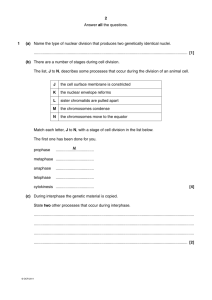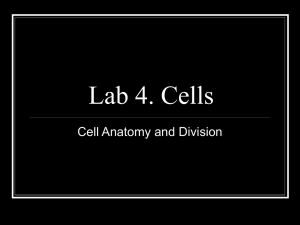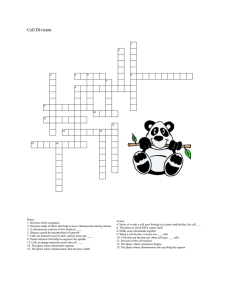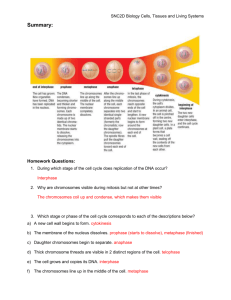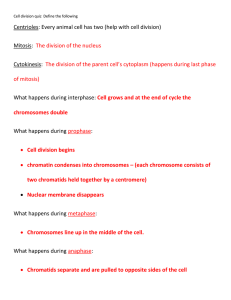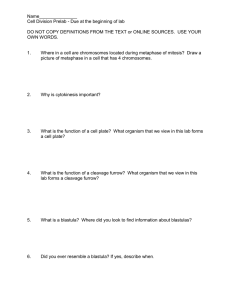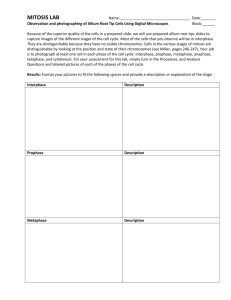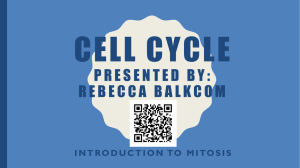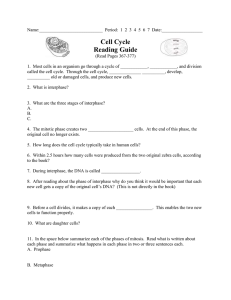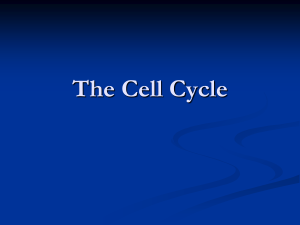Lab 5. Cells
advertisement
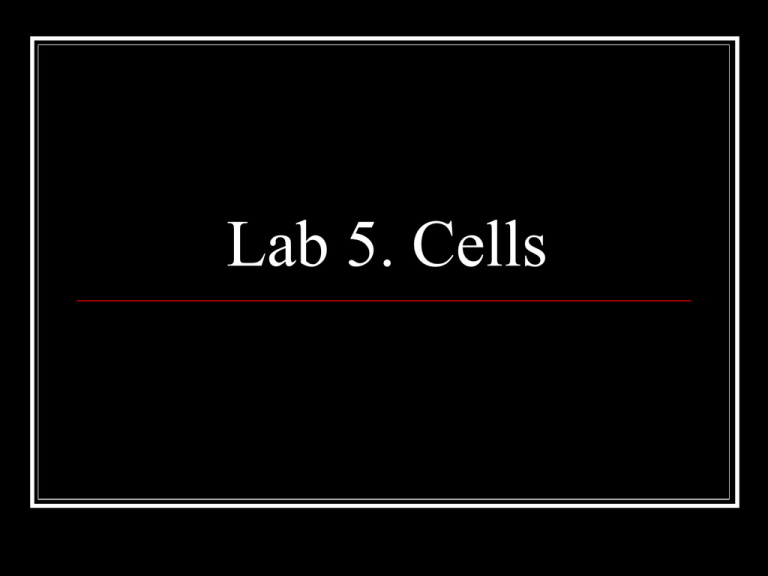
Lab 5. Cells Organelles Like mini organs within the cell, each with a particular function but that function together in systems Major ones are: Endoplasmic reticulum, mitochondria, nucleus, golgi, plasma membrane, lysosomes, ribosomes, peroxisomes Cell Division From one parent cell, two identical “daughter” cells are produced Mitosis: first copies, then divides all the DNA in a cell to place into the two daugther cells Cytokinesis: divides the cytoplasm in half to create two complete cells. Stages of cell cycles Interphase Mitosis = PMAT: Prophase: nuclear envelope disappears, spindle starts to from, chomosomes become visible Metaphase: Chromosomes line up at middle (metaphase plate) Anaphase: chromosomes separate Telophase: nuclear envelope reforms, chromosomes decondense Cytokinesis Occurs at roughly the same time as telophase. Cleavage furrow divides the cytoplasm making two complete daughter cells. Today 1. 2. 3. Lab exercise #5 Activities: Look over membrane structure and cell model Label Figure 5.2, Fill in Table 5.2 (easier after Thursday’s lecture) Look at onion root tip slides OR whitefish slides, locate and draw an example of each phase on piece of paper provided What to look for… Interphase: most cells (like 95%) will be in interphase. Can’t distinguish the chromosomes P: early spindle forming, start to see chromosomes M: chromosomes all lined up at middle A: chromos clustered around each pole T: cleavage furrow (cytokinesis) To Turn in: Drawings of the 6 stages Table 5.2 and Figure 5.2 Sections D and F of the Lab Report
